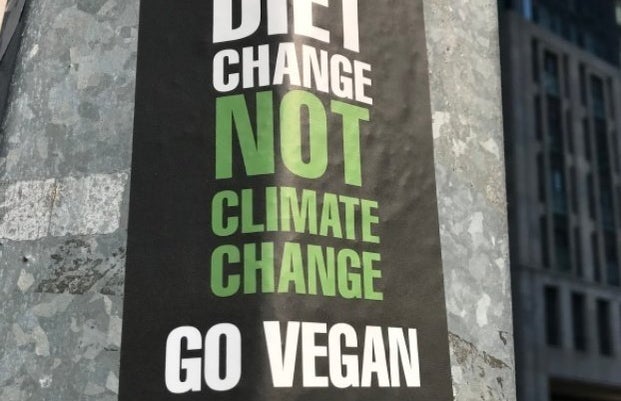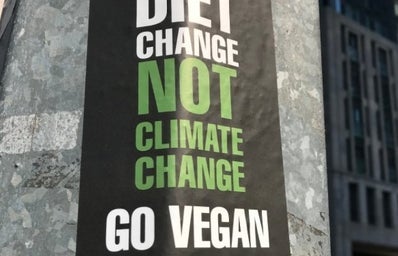There are many reasons why people give up meat and dairy products. Some people feel it is the more humane thing to do, others just find the idea of animal products a bit gross. The rising popularity of vegan and vegetarian diets among young people these days however, has a lot to do with climate change. Due to the amount of land, water and food needed to raise animals for meat and milk, diets that cut out animal products can be more beneficial to the environment—especially if we use locally sourced produce.
Overall, this environmentalist wave is a great influence. Any attempts to participate and change our habits to limit waste and conserve our resources is a step in the right direction for our planet. However, there is significantly more pressure for women to change their eating habits then men.
Scrolling through the comments section of a YouTube video or Instagram photo, it’s extremely common to see comments asking female influencers to go vegan. Whereas, it is far less common to find these sorts of requests on a male influencer’s profile. These remarks are of course made with the hope that influencers will be able to use their platform to convince others to copy them and thereby spread the good message of fulfilling your protein needs with legumes rather than meat. It’s an effective and understandable strategy but it’s still fairly one-sided. Female influencers have largely female audiences after all.
In general, women are far more likely to make dietary changes than men. According to a 2012 study by the International Journal of Women’s Health, 43 per cent of college age women were on diets with the intention of losing weight. Consistently we see women try to make themselves smaller even when they don’t need to. The study made special mention of the inconsistency between women’s perceived BMI and their measured BMI. 78 per cent of the study’s participants trying to lose weight had a healthy body mass yet they continued to diet anyway. From a young age women are taught that they are not meant to take up space and/or resources. So it makes sense that they are the most heavily affected by the idea of limiting their consumption and the most likely to feel guilty about what they eat. Women’s self-sacrificial standards combined with legitimate concern for the climate puts considerable pressure upon females regarding their dietary choices.
Men, on the other hand, feel a great deal of pressure to assert themselves and their masculinity by consuming meat. There are still quite a few people who like to hold on to the old mentality of ‘men were the hunters’ and that makes it difficult for them to let go of meat despite potentially wanting to be more environmentally friendly. Not to mention that men can receive substantial criticism from peers if they decide to give up meat. For a time, it was a common insult on certain parts of the internet to call someone a “Soy Boy;” a term constructed from the (incorrect) belief that soy raises one’s estrogen levels and makes one more feminine. Disregarding, for the moment, the sexism inherent in fearing femininity, attitudes like these are what cause men to hesitate in making the switch to a meatless diet for fear of losing their social group or being somehow robbed of their masculinity. Men have far more motivation to keep eating meat for social reasons than they do to give it up, rendering them less desirable targets for veganism.
In addition, people are far more comfortable asking women to make sacrifices in their dietary choices. They receive suggestions about what and how they should eat all the time. From a relative saying, ‘Maybe you should order the salad, sweetie,” to a friend’s gentle warning about how fattening that cream cheese spread is, to billboards and magazine covers, “helpful tips” are everywhere. It’s no wonder that 79 per cent of vegans in the U.S. are women and the same can be said for 59 per cent of vegetarians.
Though there is nothing wrong with attempting to convince people to eat better for their health or for the sake of the environment, the problem lies in the fact that women are disproportionately targeted to bear the burden. That responsibility should be shared among all of us.



